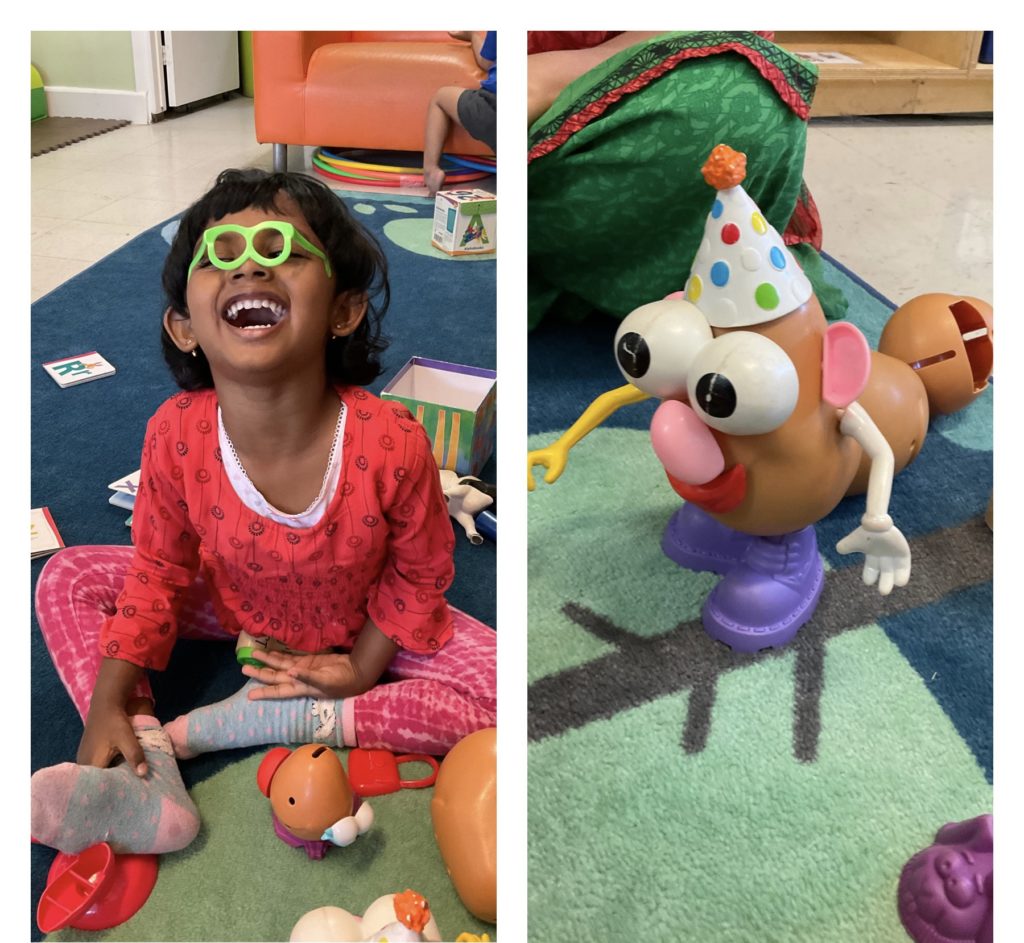
In early June Creating Together scheduled a Parent and Caregiver Discussion on Play-Based Learning. An understanding of Play-Based Learning is incredibly beneficial for all parents and caregivers of children in their early years.
Why is Play-Based Learning important, and how can we support it? Continue reading to learn more!
What Do Children Learn Through Play?
Child-led play develops areas such as language, communication, literacy, spatial awareness, and social emotional skills, as well as creativity, wonder, self-regulation, self reflection, and problem solving. The experience of play is fundamentally relationship and community building.
What Makes for Meaningful Play?
1. Children make their own decisions.
2. Children are intrinsically motivated.
3. Children become immersed in the moment.
4. Play is spontaneous, not scripted.
5. Play is enjoyable.
(Nell & Drew, n.d.)
How Can You Support Play-Based Learning?
As a parent or Caregiver, how can you support play based learning? One of the first steps in supporting play is understanding it, and respecting it. When we as adults learn to value play, we allow children the time and focus they need to aid their learning and development.
What is Your Role?
- Follow their interests – allow the child to lead!
- Expand through language, materials, planning
- Observe
Interested in learning more? Explore the following resources:
https://www.wonderschool.com/p/parent-resources/what-is-play-based-learning/
https://www.naeyc.org/our-work/families/five-essentials-meaningful-play
Join us at Creating Together for play-based learning opportunities. See our calendar here.
References
Nell, M. L., & Drew, W. F. (n.d.). Five Essentials to Meaningful Play. NAEYC. https://www.naeyc.org/our-work/families/five-essentials-meaningful-play
